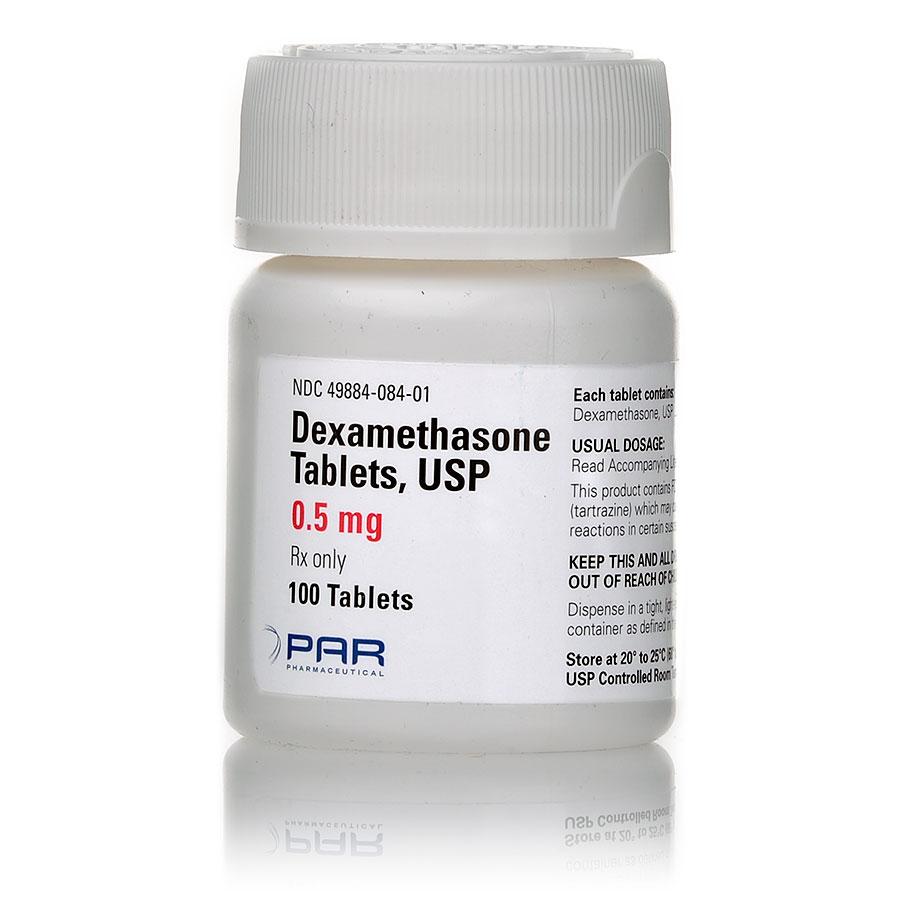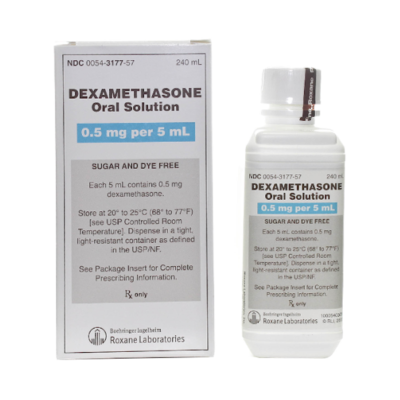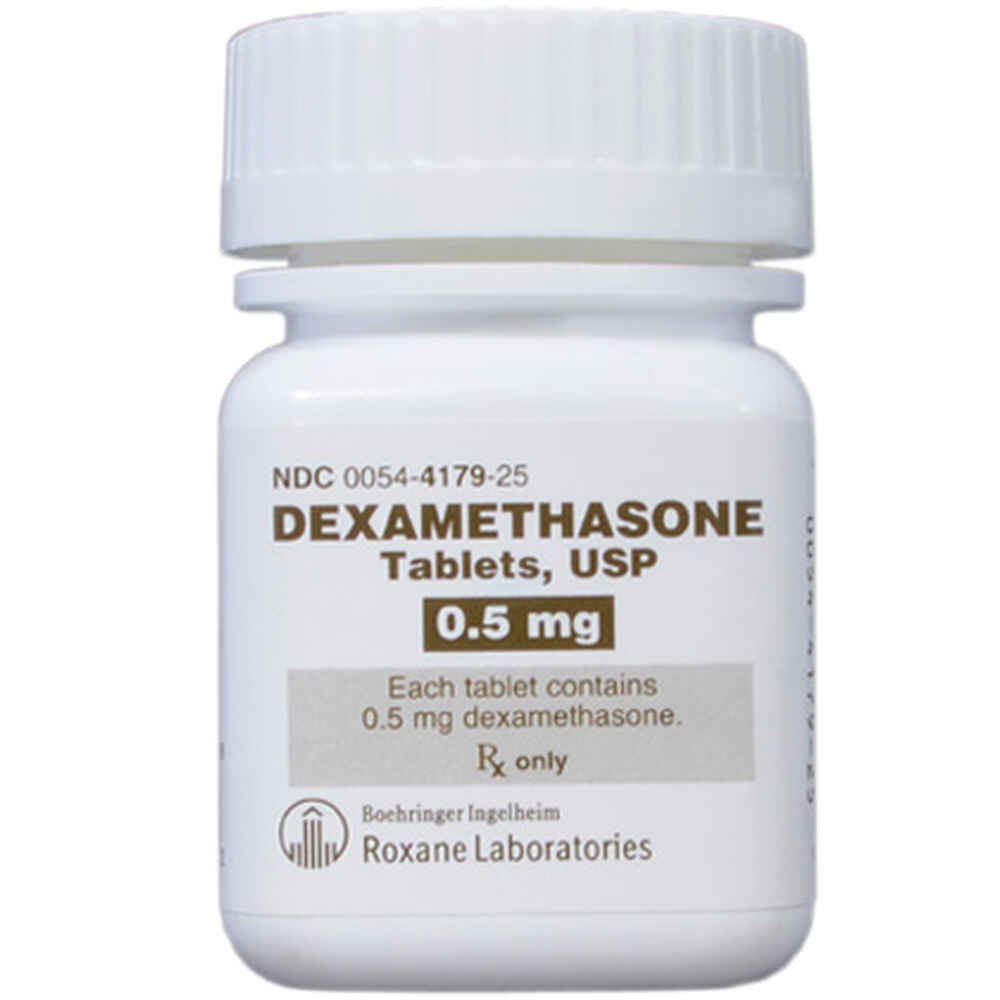Dexamethasone is used in dogs to manage and treat immune-mediated diseases, some cancers, allergic reactions, inflammatory diseases, and skin and eye problems. It should be used cautiously with pets with certain medical conditions and pregnant or lactating pets.
Dexamethasone is a corticosteroid and immunosuppressant that effectively decreases inflammation in dogs. It is commonly prescribed by veterinarians to alleviate symptoms and provide relief for various health conditions in dogs, cats, and horses. This medication can help with conditions such as immune-mediated hemolytic anemia or thrombocytopenia, asthma, hives, itching, and certain neurologic diseases.
However, it is important to follow the prescribed dosage and consult with a veterinarian before administering dexamethasone to ensure the safety and well-being of the dog.

What Is Dexamethasone?
Dexamethasone is a medication used in dogs to manage immune-related diseases, cancers, allergies, and inflammatory conditions. It can also be applied topically to treat skin and eye problems. Dexamethasone is a commonly prescribed steroid that helps decrease inflammation in dogs.
Uses In Dogs
Dexamethasone is widely used in veterinary medicine to manage and treat a variety of health conditions in dogs. This corticosteroid medication is particularly effective in addressing immune-mediated diseases such as immune-mediated hemolytic anemia or thrombocytopenia. Dexamethasone is also commonly prescribed to treat certain types of cancers, allergic reactions including asthma, hives, and itching, as well as inflammatory and neurologic diseases. Additionally, it can be applied topically to address various skin and eye problems.
Dosage And Administration
When it comes to the dosage and administration of dexamethasone in dogs, it is essential to follow the veterinarian’s instructions precisely. The dosage will vary depending on the specific condition being treated, the dog’s size, and overall health. Dexamethasone is available in various forms, including oral tablets, injectable solutions, and topical preparations. The veterinarian will determine the appropriate dosage and route of administration.
Comparison With Prednisone
Dexamethasone and prednisone are both corticosteroid medications commonly used in veterinary medicine. While they have similar effects, there are some differences between the two. Dexamethasone is generally more potent than prednisone and has a longer duration of action. It is typically reserved for more severe or resistant cases. However, prednisone is often preferred for long-term use due to its lower potency and milder side effects. The veterinarian will evaluate the dog’s specific needs and determine which medication is most appropriate.
In conclusion, dexamethasone is a valuable medication in veterinary medicine, offering a wide range of uses in dogs. Its effectiveness in managing immune-mediated diseases, cancers, allergic reactions, and inflammatory conditions, as well as its topical applications, make it a versatile choice for veterinary practitioners. However, it is crucial to follow the veterinarian’s instructions regarding dosage and administration, as well as to understand the potential differences between dexamethasone and prednisone. By using this medication judiciously and under professional guidance, pet owners can contribute to their dogs’ overall well-being and health.
Side Effects And Cautions
Dexamethasone is a commonly prescribed medication for dogs that is used to manage and treat a variety of conditions. However, like any medication, it is important to be aware of the potential side effects and take the necessary precautions when administering dexamethasone to your furry friend. In this section, we will discuss common side effects that may occur and important cautions to keep in mind.
Common Side Effects
While dexamethasone can be highly effective in treating certain conditions, it is important to note that there are potential side effects that can occur. It is essential to monitor your dog closely and consult with your veterinarian if you notice any concerning symptoms. Some common side effects that may occur include:
- Weight gain
- Pot-bellied appearance
- Panting
- Vomiting
- Diarrhea
- Elevated fat or liver enzymes on bloodwork analysis
These side effects are more likely to occur with higher doses of dexamethasone. It is important to follow the prescribed dosage and communicate any changes in your dog’s health to your veterinarian.
Cautions And Precautions
It is crucial to take certain precautions when using dexamethasone for your dog. Here are some important considerations:
- Cautious Use with Kidney or Heart Disease: Dexamethasone should be used cautiously in pets with kidney or heart disease. It is recommended that you consult with your veterinarian to discuss the potential risks and benefits.
- Avoid bacterial or fungal infections: Dexamethasone should not be used if your dog has a bacterial or fungal infection. The medication can suppress the immune system, making it difficult for the body to fight off the infection.
- Avoid in Pregnant or Lactating Dogs: Dexamethasone should be avoided in pregnant or lactating dogs unless specifically recommended by a veterinarian. It is important to weigh the potential risks to the mother and puppies against the benefits of the medication.
Remember, always follow your veterinarian’s instructions when administering dexamethasone to your dog. They will consider your dog’s specific health conditions and provide the appropriate dosage and instructions for use. If you have any concerns or notice any changes in your dog’s behavior or health while using dexamethasone, contact your veterinarian immediately.
Dexamethasone For Dogs: Important Points To Know
Dexamethasone for Dogs is commonly used to manage and treat immune-mediated diseases, some cancers, allergic reactions, inflammatory diseases, and certain neurologic diseases. It can also be used topically to treat skin and eye problems in dogs.
Availability And Forms
Dexamethasone, a commonly prescribed medication for dogs, is available in various forms to suit different treatment needs. It can be obtained in the form of:
- Tablets: These are oral medications that can be given directly to your dog or hidden in their food.
- Injection: Dexamethasone can also be administered through injections, typically given by a veterinarian.
- Eye Drops: For eye-related issues, dexamethasone is available in the form of eye drops.
Depending on your dog’s condition and the treatment plan recommended by your veterinarian, the appropriate form of dexamethasone will be prescribed. It is important to follow the prescribed administration method and dosage to ensure the best results for your furry friend.
Duration Of Use
The duration of dexamethasone use for dogs varies depending on the specific condition being treated. In some cases, it may be a short-term treatment for acute conditions, while in others, it may be a long-term therapy for chronic ailments.
It is crucial to strictly adhere to the prescribed dosage and duration of use to prevent any potential adverse effects. Abruptly stopping the use of dexamethasone can also lead to withdrawal symptoms or a relapse of the condition.
Safe Dosage Guidelines
The dosage of dexamethasone for dogs is determined by their weight and the severity of the condition. It is crucial to follow the dosage guidelines provided by your veterinarian to ensure your dog’s safety and the effectiveness of the treatment.
Avoid adjusting the dosage without consulting your veterinarian, as an improper dosage can lead to potential side effects or suboptimal treatment outcomes.
It is always advisable to discuss any concerns or questions regarding dexamethasone dosage with your veterinarian to ensure the well-being of your dog.


Frequently Asked Questions On Dexamethasone For Dogs
Why Is Dexamethasone Used In Dogs?
Dexamethasone is used in dogs to manage and treat immune-mediated diseases, some cancers, allergic reactions, inflammatory diseases, and some neurologic diseases. It is also used topically to treat skin and eye problems.
How Much Dexamethasone Do I Give My Dog?
Dexamethasone dosage for dogs should be determined by a veterinarian. The dosage will depend on the dog’s weight, medical condition, and other factors. It is important to follow the veterinarian’s instructions and not give dexamethasone to your dog without professional guidance.
Is Dexamethasone Better Than Prednisone For Dogs?
Dexamethasone is used to manage and treat immune-mediated diseases, cancers, allergic reactions, inflammatory diseases, and neurologic diseases in dogs. It can also be used topically for skin and eye problems. Dexamethasone is a versatile medication for various conditions in dogs.
What Effect Does Dexamethasone Have On Animals?
Dexamethasone is used to manage and treat various diseases in animals, including immune-mediated diseases, allergies, inflammatory diseases, and certain types of cancers. It can also be used topically to treat skin and eye problems. Higher doses may cause side effects such as weight gain, muscle weakness, panting, and gastrointestinal issues.
Use with caution in pets with certain medical conditions and during pregnancy or lactation.
Conclusion
Overall, dexamethasone is a versatile medication used to manage various conditions in dogs. It is effective in treating immune-mediated diseases, allergic reactions, inflammatory diseases, and certain neurologic diseases. Dexamethasone can also be applied topically to address skin and eye problems.
However, it is important to use caution when administering this medication to pets with certain health conditions, and it should not be given without veterinary guidance. Always consult your veterinarian for the appropriate dosage and to ensure the safety of your furry friend.

